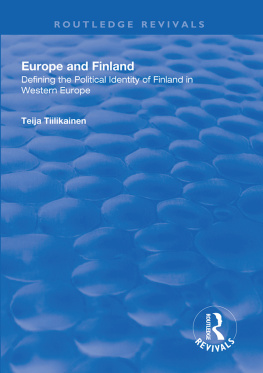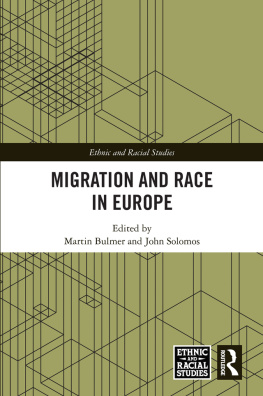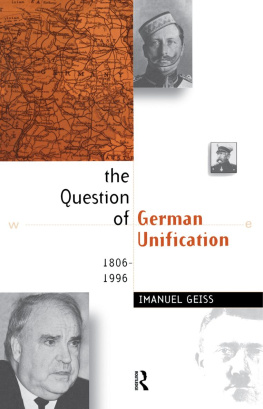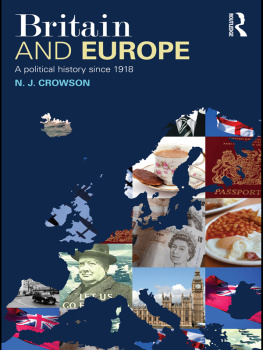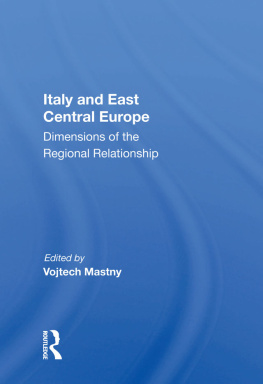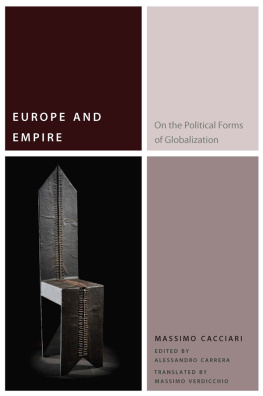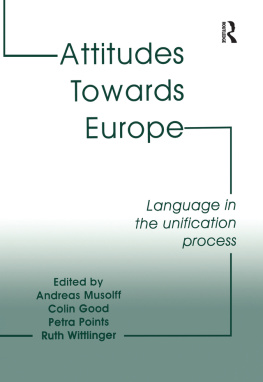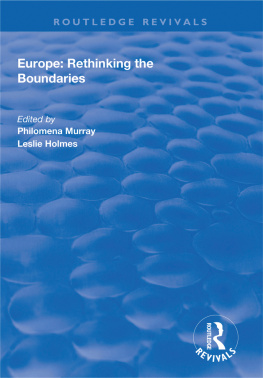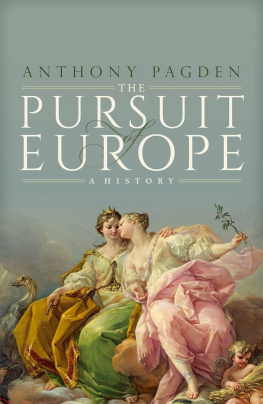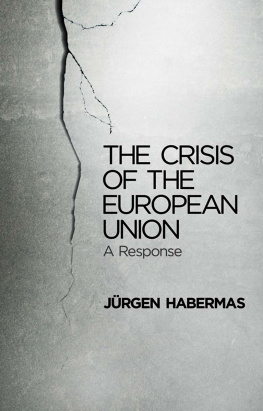First published 1998 by Ashgate Publishing
Reissued 2018 by Routledge
2 Park Square, Milton Park, Abingdon, Ox.on OX14 4RN
711 Third Avenue, New York, NY 10017, USA
Routledge is an imprint of the Taylor & Francis Group, an informa business
Copyright Teija Tiilikainen 1998
All rights reserved. No part of this book may be reprinted or reproduced or utilised in any form or by any electronic, mechanical, or other means, now known or hereafter invented, including photocopying and recording, or in any information storage or retrieval system, without permission in writing from the publishers.
Notice:
Product or corporate names may be trademarks or registered trademarks, and are used only for identification and explanation without intent to infringe.
Publishers Note
The publisher has gone to great lengths to ensure the quality of this reprint but points out that some imperfections in the original copies may be apparent.
Disclaimer
The publisher has made every effort to trace copyright holders and welcomes correspondence from those they have been unable to contact.
A Library of Congress record exists under LC control number: 97038532
ISBN 13: 978-1-138-31327-9 (hbk)
ISBN 13: 978-1-138-31333-0 (pbk)
ISBN 13: 978-0-429-45766-1 (ebk)
This book, originally prepared as a doctoral thesis in political science, was started in 1991. Many people supported me and influenced my thinking when I was writing the book. I would like to point out three of them explicitly without, however, intending to lessen my gratitude to others in any way.
Heikki Patomki taught me to question things. He showed me that there are no impartial texts and meanings and that things may always be read in other ways. The approach of my book, therefore, is a result of my debates with Heikki in the beginning of this project. I felt I could only be safe by finding an approach to which I would be committed heart and soul.
Martti Koskenniemi taught me to formulate an argument. His own thesis stood as an unattainable ideal for me of how scientific works should be constructed. Awareness of the role of argument saved me, in consequence, from having to struggle with a preliminary assessment of introductory texts, an assessment that can so often serve to obscure the writers own position.
And last but not least, George Maude has taught me what scientific texts are for. Commenting several times upon every single sentence of the book George has reminded me of the fact that a book will always have a public and that it should be written for a public. A literary process should transcend the writers own dialogue of the soul with itself even if this is a worthy starting-point for the journey of exploration known as research.
Several organisations have contributed to the financing of this research project. bo Akademi University together with the Research Centre of the bo Akademi Foundation have given the invaluable professional background not only through various grants, posts and facilities which I have received but also through different forms of library and administrative assistance. A major part of the research was carried out within the framework of the research project the Citizens Europe financed by the Academy of Finland. The book has been concluded under the auspices of the National Defence College where my willingness to finish the project has met with great understanding. Ashgates decision to publish this book gave me great pleasure and I would like to express my gratitude for the editorial assistance I have received.
This book has been developing together with our little son, Saska, and is dedicated to him. Without my family, and the support and understanding of my husband Timo Sormunen, neither this book nor any other product of my academic career would exist.
Helsinki, 8 August 1997
Teija Tiilikainen
In our time, what is at issue is the very nature of man, the image we have of his limits and possibilities as man. History is not yet done with its exploration of the limits and meanings of human nature .
C. Wright Mills
Introduction
One of the key questions of the present integration project is the question of the nature of the Europe that is being constructed. The question reaches in a strange way into the core of European political culture. The very putting of the question is an expression of European unity and of the relativity connected with it. There is that much of a common political culture and identity in Europe that it makes sense to talk about, or even to plan seriously, a Europe that would be politically united under common institutions of power. The constraints on the common culture are revealed when the question is put about the nature of this united Europe. That there is no automatic answer to this question, which would at the same time be articulated as a demand for the political unity of Europe, is significative of European culture. Political diversity is itself a key characteristic of European unity.
The purpose of this book is to approach the reasons for this diversity in unity and to make it more concrete through one example. The first argument of the study is that differences in views concerning European political unity can be explained through differences in political culture and traditions. The second argument is that these differences again are of historical origin.
In the following chapters I will thus mainly have to do with what I have called political cultures and traditions. I will try to point out the divisions in European political culture that are decisive with respect to the present integration project. The analysis is limited to Western Europe, including Northern Europe, because the roots of the project are there. My conception about the historical origin of cultural divisions and differences reflects itself in the general structure of the book as well as in its individual chapters. Western European cultures are first analysed as far as their general relationship to the idea of political community is concerned. Thereafter the idea of a united Europe is brought into focus, first in its earlier phases and then, in the fourth chapter, in its present form. In the latter part of the book, more careful attention is paid to Finnish political culture and to the way Finland has related to the idea of a united Europe.
The idea that cultures, and underlying meanings in general, are of key value as far as knowledge about societies and social life is concerned can be linked to a particular humanist tradition in social sciences. One of the main orientations of this tradition starts from history and historical analysis as the focal instrument in the explanation of culture and cultural differences. This approach, which constitutes also the theoretical framework of this study, is usually known as the historyofideas approach. In the first chapter, it is my intention to introduce this theoretical framework and to define the position that the present study takes within it, that is, to explicate its theoretical arguments.
The HistoryofIdeas as a Scientific Discipline
The approach of this study relays the message of Romanticism in Europe. By Romanticism, I mean the tradition that brought the idea of the particular qualities and capacities of the human being into the Western notion of science. It placed itself against the Enlightenment conception of a unitary science and put forth the demand that as an object for science, humanity should be distinguished from other parts of nature. The element that was seen as raising the human being above other creatures was the human mind and the meaning-giving role of the human being. Romanticism created the whole field of the humanities and raised the question of identity in social sciences that, on the whole, were a product of the Enlightenment.

